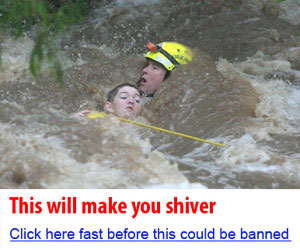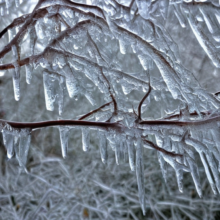“I wouldn’t even know how to purify water or find food if I had to.”
It’s a raw, honest admission, isn’t it? For most of us, life has been built on the assumption that clean water flows from the tap and fully-stocked grocery aisles are just a short drive away. And why wouldn’t we believe that? It’s been the rhythm of modern life for generations. But the moment that rhythm falters—even briefly—the illusion of security crumbles, and with it, a haunting realization: what would I do if those conveniences disappeared?
It’s not an easy question to sit with, but it’s one worth asking.
For a lot of people, the thought of purifying water or foraging for food feels like something out of a survival show. It’s fascinating to watch from the comfort of your couch, but in real life? The stakes are higher. And when it comes to your family’s safety, there’s no pause button or off-camera crew to swoop in and save the day.
If you’ve felt that twinge of unease, you’re not alone. In fact, you’re ahead of the curve just by recognizing it. Because here’s the thing—being unprepared isn’t a flaw; it’s a starting point. And the good news? It’s not as hard or overwhelming as it seems to take those first steps toward readiness.
Let’s explore this together, starting with a few simple truths.
The Comfort of Assumptions
Think about the last time you filled a glass of water. Did you question it? Did you pause to consider where it came from or whether it was safe to drink? Probably not. Water is one of those things we trust implicitly—until we can’t. The same goes for food. Shelves full of bread, milk, and fresh produce feel like a promise that tomorrow will look just like today.
But nature doesn’t make promises, and neither does the grid. Storms, power outages, or disruptions in supply chains can unravel that comfort in a matter of hours.
Still, there’s no need to panic. Instead, let’s channel that discomfort into action. After all, the most reliable safety net is the one you create yourself.
Start Small, Start Smart
The idea of “survival skills” can feel intimidating, conjuring images of rugged outdoorsmen scaling cliffs or building fires with nothing but a spark. But survival isn’t about heroics; it’s about basics. And when it comes to water and food, the basics are refreshingly straightforward.
Take water, for instance. It’s essential—non-negotiable. Without it, even the strongest among us can only last a few days. The good news? Purifying water doesn’t require a chemistry degree or high-tech equipment. A simple water filter, like a LifeStraw or portable purifier, can remove contaminants in seconds. Boiling is another fail-safe method. Got a pot and a heat source? You’ve got clean water.
And food? It’s not about mastering wilderness foraging overnight. Start by learning what’s edible in your local area. Dandelions, for example, aren’t just weeds; they’re nutrient-packed plants hiding in plain sight. Stockpiling non-perishable foods like beans, rice, and canned goods is another no-brainer. It’s not glamorous, but it works.
What If the Worst Happens?
Let’s paint a picture—not to scare you, but to inspire you. Imagine a scenario where the power is out for days. The tap runs dry, and the fridge is silent. Neighbors are panicking, gas stations are swamped, and grocery stores have been picked clean.
It’s a lot, right? But now, picture yourself calmly unpacking a water filter, boiling a pot of creek water, or using the stash of canned food you thoughtfully tucked away months ago. While others are scrambling, you’re steady.
That’s the power of preparation—not just physical, but mental. Knowing you have a plan turns fear into focus and chaos into calm.
Building Confidence One Step at a Time
Here’s a little secret: every expert started as a beginner. That’s not just a cliché; it’s the truth. The people you see confidently navigating wilderness survival didn’t wake up with that knowledge—they built it, step by step, with patience and curiosity.
You can do the same. Try practicing one skill at a time. Purify a bottle of water with a portable filter just to see how it works. Research edible plants in your area and go on a walk to spot them (even if you don’t pick them right away). Experiment with cooking a meal using only pantry staples. These small, low-pressure activities not only teach you practical skills but also reframe survival as something manageable, even empowering.
Survival Isn’t About Fear—It’s About Freedom
Here’s a shift in perspective that might surprise you: survival skills aren’t just about preparing for disasters. They’re about reclaiming a sense of independence that modern life has quietly eroded.
When you know how to find clean water or identify food sources, you’re no longer entirely dependent on fragile systems. You’re free to face uncertainty with confidence instead of fear. And that freedom? It’s priceless.
Stories of Resilience
Think about the people you admire most. Chances are, they’re not the ones who had everything handed to them. They’re the ones who rose to the occasion, who found strength in tough situations. That’s what resilience is all about—not knowing everything, but being willing to learn and adapt.
One family I read about found themselves stranded during a flood with nothing but a camping stove and a few basic supplies. Instead of panicking, they relied on what they’d practiced: boiling water from a rain barrel and using a stash of dehydrated meals to stay nourished until help arrived.
It’s stories like these that remind us: we’re capable of far more than we realize when we take the time to prepare.
The First Step Is Yours
So, here you are, faced with that original question: “What would I do if I had to?” And the answer? You’d figure it out. You’d take one small step, then another, until you built a foundation of skills and confidence strong enough to weather whatever comes your way.
Because here’s the truth: survival isn’t about bracing for disaster—it’s about embracing your own strength, your resourcefulness, your ability to protect the people you love. And that starts right here, right now, with the decision to prepare.
It’s not about perfection or knowing everything. It’s about starting, however imperfectly, and trusting that each step will take you closer to the peace of mind you’re seeking.
And maybe, just maybe, the next time you pour a glass of water or stroll through a grocery aisle, you’ll do so with a quiet, unshakable confidence. Because no matter what the future holds, you’ll know you’ve got this.




